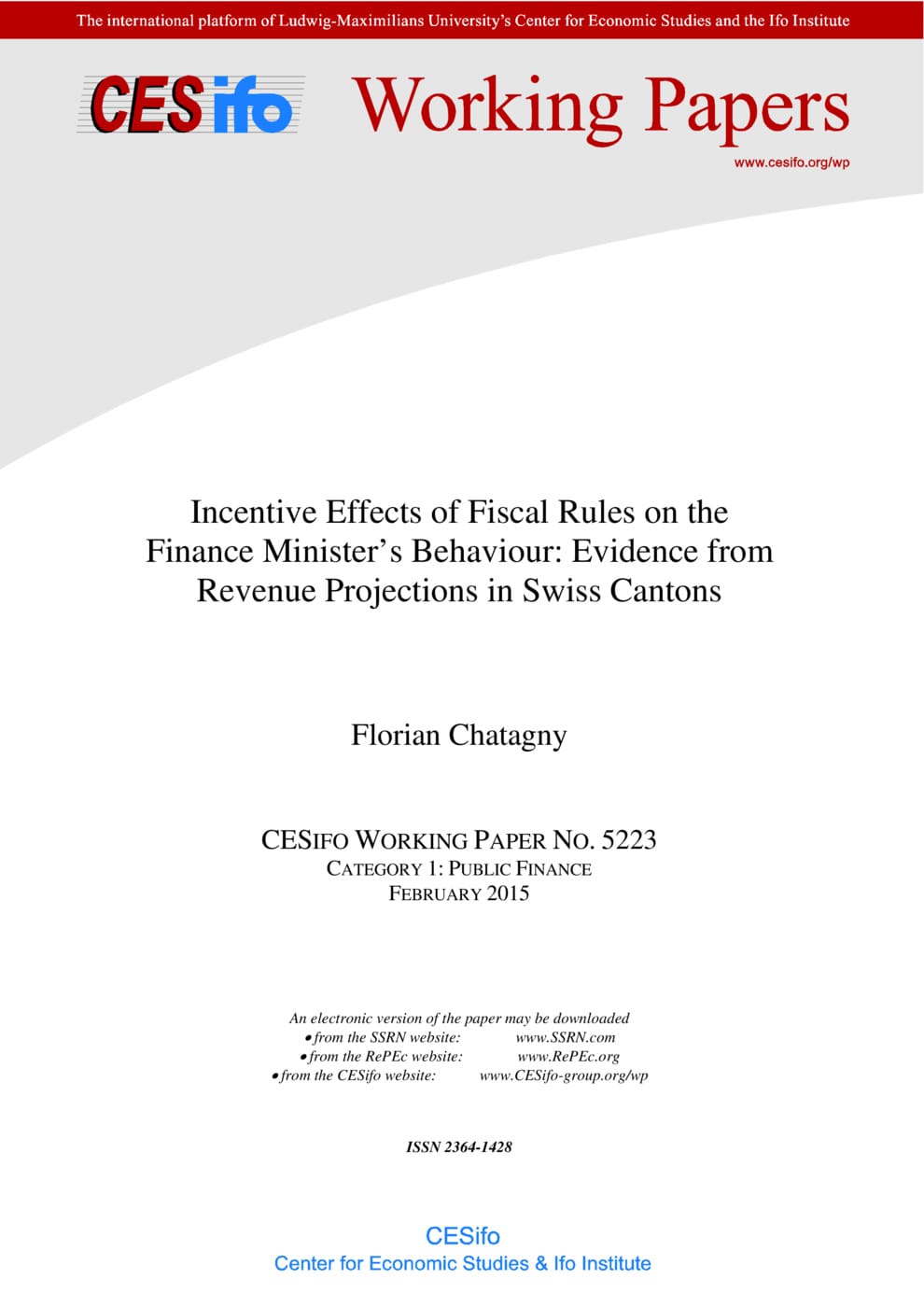Incentive Effects of Fiscal Rules on the Finance Minister's Behaviour: Evidence from Revenue Projections in Swiss Cantons
CESifo, Munich, 2015
CESifo Working Paper No. 5223

Predicting available tax revenue accurately is a key step of fiscal policy. It has recently been shown that revenue projection errors have a direct impact on fiscal deficits. In this paper, we explore the relationship between the ideology of the finance minister and tax revenue projection errors, and assess how the stringency of fiscal rules alters this relationship. We use a panel dataset of 26 Swiss cantons over the period 1980-2007 as well as a new dataset of 99 finance ministers at the cantonal level. Our empirical strategy exploits the fact that the allocation of the departments - including the department of finance - to the elected politicians is a random process from the point of view of the voters. We identify a rather counter-intuitive positive effect of the ideology of the finance minister on tax revenue projection errors in the sense that a more left-wing finance minister produces relatively more conservative forecasts. We also find that fiscal rules reduce the effect of ideology on tax revenue projection errors. These results suggest that left-wing finance ministers need to curb deficits relatively more in order to signal the same level of competence to the voters than right-wing finance ministers. They also suggest that fiscal rules render the signal less informative to the voters and thereby reduce the incentive for left-wing finance ministers to be more conservative in their projections.
Public Finance
Public Choice